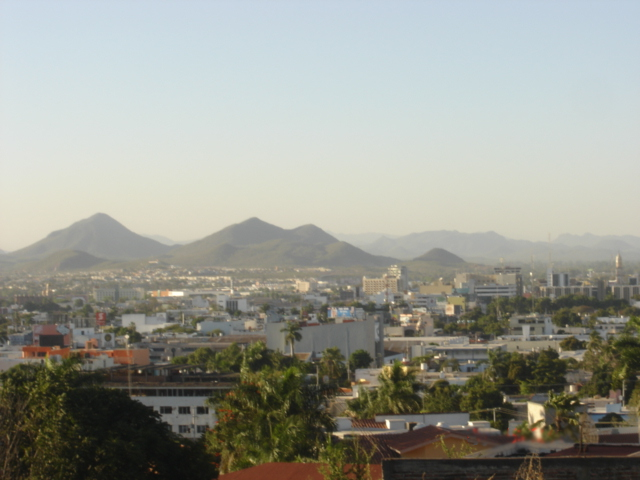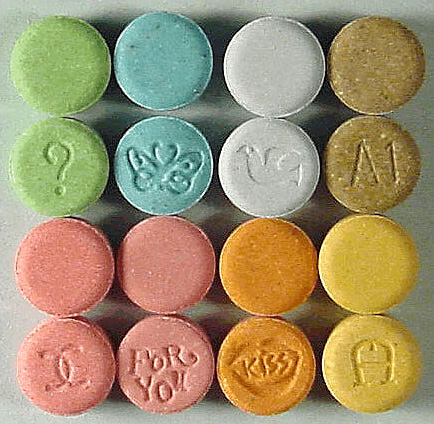|
Illegal Drug Trade In The Philippines
The prevalence of illegal drug use in the Philippines is lower than the global average, according to the United Nations Office on Drugs and Crime (UNODC). President Rodrigo Duterte has claimed that the country could become a "narco-state". Two of the most used and valuable illegal drugs in the country are Methamphetamine, methamphetamine hydrochloride (known locally as shabu) and Cannabis, marijuana. In 2012, the United Nations said the Philippines had the highest rate of methamphetamine use in East Asia, and according to a U.S. State Department report, 2.1 percent of Filipinos aged 16 to 64 use the drug based on 2008 figures by the Philippines Dangerous Drugs Board. As of 2016, the United Nations Office of Drugs and Crime report that 1.1 percent of Filipinos aged 10 to 69 use the drug. In Metro Manila, most barangays are affected by illegal drugs. Production Marijuana In September 2019, rapper Marlon Peroramas, better known by his stage name "Loonie" and 4 others were arrested ... [...More Info...] [...Related Items...] OR: [Wikipedia] [Google] [Baidu] |
Philippines
The Philippines, officially the Republic of the Philippines, is an Archipelagic state, archipelagic country in Southeast Asia. Located in the western Pacific Ocean, it consists of List of islands of the Philippines, 7,641 islands, with a total area of roughly 300,000 square kilometers, which are broadly categorized in Island groups of the Philippines, three main geographical divisions from north to south: Luzon, Visayas, and Mindanao. With a population of over 110 million, it is the world's List of countries and dependencies by population, twelfth-most-populous country. The Philippines is bounded by the South China Sea to the west, the Philippine Sea to the east, and the Celebes Sea to the south. It shares maritime borders with Taiwan to the north, Japan to the northeast, Palau to the east and southeast, Indonesia to the south, Malaysia to the southwest, Vietnam to the west, and China to the northwest. It has Ethnic groups in the Philippines, diverse ethnicities and Culture o ... [...More Info...] [...Related Items...] OR: [Wikipedia] [Google] [Baidu] |
Sinaloa Cartel
The Sinaloa Cartel (, , after the native Sinaloa region), also known as the ''CDS'', the ''Guzmán-Loera Organization'', the ''Federation'', the ''Sinaloa Cartel'', or the Pacific Cartel, is a large, drug trafficking transnational organized crime syndicate and U.S.-designated Foreign Terrorist Organization based in Culiacán, Sinaloa, Mexico, that specializes in illegal drug trafficking and money laundering. The cartel's history is marked by evolution from a small crime syndicate to one of the most powerful and violent drug trafficking organizations in the world. Founded in the late 1960s by Pedro Avilés Pérez in Sinaloa, the cartel initially focused on smuggling marijuana into the United States. Pérez is credited with pioneering the use of aircraft for drug smuggling, laying the groundwork for large-scale trafficking operations. His organization was a training ground for the second generation of Sinaloan traffickers. The Guadalajara Cartel was co-founded by Félix Gall ... [...More Info...] [...Related Items...] OR: [Wikipedia] [Google] [Baidu] |
Insomnia
Insomnia, also known as sleeplessness, is a sleep disorder where people have difficulty sleeping. They may have difficulty falling asleep, or staying asleep for as long as desired. Insomnia is typically followed by daytime sleepiness, low energy, irritability, and a depression (mood), depressed mood. It may result in an increased risk of accidents of all kinds as well as problems focusing and learning. Insomnia can be short term, lasting for days or weeks, or long term, lasting more than a month. The concept of the word ''insomnia'' has two distinct possibilities: insomnia disorder (ID) or insomnia symptoms, and many abstracts of randomized controlled trials and systematic reviews often underreport on which of these two possibilities the word refers to. Insomnia can occur independently or as a result of another problem. Conditions that can result in insomnia include psychological stress, chronic pain, heart failure, hyperthyroidism, heartburn, restless leg syndrome, menopause ... [...More Info...] [...Related Items...] OR: [Wikipedia] [Google] [Baidu] |
Fly High (drug)
Fly High may refer to: * ''Fly High'' (film) or ''Flight'', a 2009 South Korean film Music Albums * ''Fly High'' (album) or the title song, by Me & My, 2001 * ''Fly High'' (EP) or a track on the EP, by Infinite H, 2013 Songs * "Fly High" (Ayumi Hamasaki song), 2000 * "Fly High", by Bridget St John from '' Songs for the Gentle Man'' * "Fly High", by Dreamcatcher from ''Prequel'' * "Fly High", by the Mad Capsule Markets from '' 010'' * "Fly High", by Shaggy from '' Rise'' * "Fly High", by Slushii from '' Out of Light'' * "Fly High", by W-inds is a Japanese Pop music, pop boy band managed by Vision Factory and signed to the Pony Canyon label since 2000. The group consists of Ryohei Chiba and Keita Tachibana; Ryuichi Ogata left the group in 2020. Tachibana is the lead singer of the gr ... * "Flyhigh", by Soulfly from '' Primitive'' See also * Flying High (other) {{Disambiguation ... [...More Info...] [...Related Items...] OR: [Wikipedia] [Google] [Baidu] |
Club Drug
Club drugs, also called rave drugs or party drugs, are a loosely defined category of recreational drugs which are associated with discothèques in the 1970s and nightclubs, dance clubs, electronic dance music (EDM) parties, and raves in the 1980s to today. Unlike many other categories, such as opiates and benzodiazepines, which are established according to pharmaceutical or chemical properties, club drugs are a "category of convenience", in which drugs are included due to the locations they are consumed and/or where the user goes while under the influence of the drugs. Club drugs are generally used by adolescents and young adults. Club drugs range from entactogens such as MDMA ("ecstasy"), 2C-B ("nexus") and inhalants (e.g., nitrous oxide and poppers) to stimulants (e.g., amphetamine and cocaine), depressants/sedatives ( Quaaludes, GHB, Rohypnol) and psychedelic and hallucinogenic drugs ( LSD and DMT). Dancers at all-night parties and dance events have used some of the ... [...More Info...] [...Related Items...] OR: [Wikipedia] [Google] [Baidu] |
MDMA
3,4-Methylenedioxymethamphetamine (MDMA), commonly known as ecstasy (tablet form), and molly (crystal form), is an empathogen–entactogenic drug with stimulant and minor Psychedelic drug, psychedelic properties. In studies, it has been used alongside psychotherapy in the treatment of post-traumatic stress disorder (PTSD) and social anxiety in Autism, autism spectrum disorder. The purported pharmacological effects that may be Prosocial behavior, prosocial include altered sensations, increased energy, empathy, and pleasure. When taken by mouth, effects begin in 30 to 45 minutes and last three to six hours. MDMA was first synthesized in 1912 by Merck Group, Merck chemist Anton Köllisch. It was used to enhance psychotherapy beginning in the 1970s and became popular as a street drug in the 1980s. MDMA is commonly associated with dance party, dance parties, raves, and electronic dance music. Tablets sold as ecstasy may be Cutting agent, mixed with other substances such as ephedr ... [...More Info...] [...Related Items...] OR: [Wikipedia] [Google] [Baidu] |
Philippine Drug Enforcement Agency
The Philippine Drug Enforcement Agency (PDEA, ; Filipino: ''Ahensiya ng Pilipinas sa Pagpapatupad ng Batas Laban sa Bawal na Gamot'') is the lead anti-drug law enforcement agency, responsible for preventing, investigating and combating any dangerous drugs, controlled precursors and essential chemicals within the Philippines. The agency is tasked with the enforcement of the penal and regulatory provisions of Republic Act No. 9165 (R.A. 9165), otherwise known as the Comprehensive Dangerous Drugs Act of 2002. PDEA is the implementing arm of the Dangerous Drugs Board (DDB). The DDB is the policy-making and strategy-formulating body in the planning and formulation of policies and programs on drug prevention and control. PDEA and DDB are both under the supervision of the Office of the President of the Philippines. History For thirty years, the Republic Act No. 6425, or the Dangerous Drugs Act of 1972, had been the backbone of the drug law enforcement system in the Philippi ... [...More Info...] [...Related Items...] OR: [Wikipedia] [Google] [Baidu] |
International Narcotics Control Strategy Report
International is an adjective (also used as a noun) meaning "between nations". International may also refer to: Music Albums * ''International'' (Kevin Michael album), 2011 * ''International'' (New Order album), 2002 * ''International'' (The Three Degrees album), 1975 *''International'', 2018 album by L'Algérino Songs * The Internationale, the left-wing anthem * "International" (Chase & Status song), 2014 * "International", by Adventures in Stereo from ''Monomania'', 2000 * "International", by Brass Construction from ''Renegades'', 1984 * "International", by Thomas Leer from ''The Scale of Ten'', 1985 * "International", by Kevin Michael from ''International'' (Kevin Michael album), 2011 * "International", by McGuinness Flint from ''McGuinness Flint'', 1970 * "International", by Orchestral Manoeuvres in the Dark from '' Dazzle Ships'', 1983 * "International (Serious)", by Estelle from '' All of Me'', 2012 Politics * Internationalism (politics) * Political international, a ... [...More Info...] [...Related Items...] OR: [Wikipedia] [Google] [Baidu] |
Manila Bulletin
The ''Manila Bulletin'' () (also known as the ''Bulletin'' and previously known as the ''Manila Daily Bulletin'' from 1906 to September 23, 1972, and the ''Bulletin Today'' from November 22, 1972, to March 10, 1986) is the Philippines' largest English language broadsheet newspaper by circulation. Founded in 1900, it is the second-oldest extant newspaper published in the Philippines and the second-oldest extant English newspaper in the Far East. It bills itself as "The Nation's Leading Newspaper", which is its official slogan. According to a survey done by the Reuters Institute for the Study of Journalism, Manila Bulletin is considered "one of the most trusted news organizations"; placing 2nd with 66% of Filipinos trusting the organization. History ''Manila Bulletin'' was founded on February 2, 1900 by Carlson Taylor as a shipping journal. In 1957, the newspaper was acquired by Swiss expatriate Hans Menzi. From 1938 to his death in 2002, Jose Guevara wrote a column of p ... [...More Info...] [...Related Items...] OR: [Wikipedia] [Google] [Baidu] |
Marcelo Garbo Jr
Marcelo is a given name, the Spanish and Portuguese form of Marcellus. Marcelo may refer to: Given name * Marcelo Costa de Andrade (born 1967), Brazilian serial killer, rapist, and necrophile * Marcelo Arriagada (born 1973), Chilean road cyclist * Marcelo Barovero (born 1984), Argentine football goalkeeper *Marcelo Barticciotto (born 1967), Argentine-born Chilean former footballer and manager * Marcelo Bordon (born 1976), Brazilian footballer * Marcelo Cabo (born 1966), Brazilian football manager * Marcelo Carrusca (born 1983), Argentine-Australian professional footballer *Marcelo Cassaro (born 1970), Brazilian author of comics * Marcelo Chamusca (born 1966), Brazilian professional football manager and former player * Marcelo Chierighini (born 1991), Brazilian competitive swimmer * Marcelo Cirino (born 1992), Brazilian footballer * Marcelo D'Andrea, Argentine film actor * Marcelo Del Debbio (born 1974), Brazilian architect and writer *Marcelo Demoliner (born 1989), Brazilian tenn ... [...More Info...] [...Related Items...] OR: [Wikipedia] [Google] [Baidu] |
Philippine Daily Inquirer
The ''Philippine Daily Inquirer'' (''PDI''), or simply the ''Inquirer'', is an English-language newspaper in the Philippines. Founded in 1985, it is often regarded as the Philippines' newspaper of record. The newspaper is the most awarded broadsheet in the Philippines and the multimedia group, called The Inquirer Group, reaches 54 million people across several platforms. History The ''Philippine Daily Inquirer'' was founded on December 9, 1985, by publisher Eugenia Apóstol, columnist Max Solivén, together with Betty Go-Belmonte during the last days of, and becoming one of the first private newspapers to be established under the Presidency of Ferdinand Marcos, Marcos regime. The ''Inquirer'' succeeded the weekly ''Philippine Inquirer'', created in 1985 by Apostol to cover the trial of 25 soldiers accused of complicity in the Assassination of Ninoy Aquino, assassination of opposition leader Ninoy Aquino at Ninoy Aquino International Airport, Manila International Airport on Augu ... [...More Info...] [...Related Items...] OR: [Wikipedia] [Google] [Baidu] |



